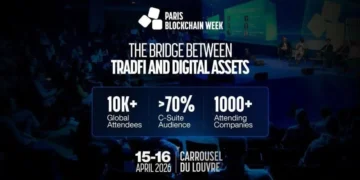The so-called ‘hero shooter’ is a relatively new type of game that has grown steadily in popularity over the course of the past 10 years. The first breakthrough hero shooter, and the one credited with developing the genre as we know it today, was Team Fortress II.
This game launched alongside Half-Life 2 and Portal in Valve’s ‘Orange Box’ bundle and still enjoys a robust multiplayer community right through to this day.
Hero shooters seek to combine the unique character abilities found in other genres like the MOBA (Multiplayer Online Battle Arena), with the high-speed thrills and tactical gameplay of the First Person Shooter.
This has given rise to a novel synthesis, and one that has been well-received in the esports community. By combining the high skill ceilings and accuracy requirements of competitive shooters, with the teamwork and character abilities of the MOBA, these games have successfully carved out a niche for themselves in the competitive gaming sector.
There are many great examples of hero shooters out there, with 2019’s Apex Legends but one great example. This title, published by EA and developed by Respawn Entertainment, combines the core elements of the hero shooter genre with the battle royale game mode, giving rise to a unique competitive experience.
However, there are typically two games that are most often credited with offering the best this genre has to offer – Overwatch (and its iterative sequel, Overwatch 2), and VALORANT.
For all their similarities, these games offer quite different experiences, and while Overwatch once occupied pride of place in the hearts and minds of fans of this genre, it has been losing ground to VALORANT ever since this new title came out.
Riot Games’ Latest Creation
So what is VALORANT? The first key thing to note is that it has been developed by Riot Games – and, in case you’re unaware of the significance of that studio, they are the developers behind League of Legends.
This MOBA is the most popular esport in the world today. It’s now commonplace to see odds and offers on League of Legends events vying for preeminence against legacy sports events in comparison
platforms such as OddsChecker , and the game is often almost single-handedly credited with giving rise to the so-called ‘esports boom’.

As such, Riot Games developing their own esports-focused hero shooter is huge news for the industry. VALORANT takes direct inspiration from the likes of Overwatch and older hero shooters, but also crucially takes a leaf out of CS:GO’s book.
This is significant as Counter-Strike: Global Offensive is the world’s most popular tactical-FPS esport, and in drawing on some of its gameplay features and style for VALORANT, Riot Games has sought to set it apart from more cartoonish hero shooters like TF2 and Overwatch.
Purer Gameplay Experience
VALORANT makes no bones about drawing direct inspiration from the Counter-Strike series, and its two sole game modes – a regular deathmatch and a bomb defusal mode, make up the core competitive scenarios favored by CS:GO’s esports community.
Greater Emphasis on Gunplay
While VALORANT is truly a hero shooter, in which players can select from a range of different characters or ‘agents’, each with distinct abilities, these play more of a background role than hero characters do in Overwatch.
Choice of character also does not influence weapon load-outs between players, meaning everyone is competing on a level playing field in terms of armaments. This makes it more similar to the customizable armor abilities found in Halo: Infinite, than champion characters in Dota 2.
More Balanced Maps
One area where VALORANT garners a lot of acclaims is in its map design. Maps are well balanced, with choke points and multiple levels and sight lines. This further demonstrates its commitment to doubling down on offering a rigorous competitive experience for gamers.
Higher Skill Ceiling
Whereas Overwatch is a fun casual game, it has suffered as an esport between its commitment to fun character abilities and bombastic effects. While these are enjoyable for gamers, they level the playing field between more and less skilled players in a way that hampers fair competition. This is not so in VALORANT, which rewards accuracy and tactical gameplay in much the same way that CS:GO does.
Follow us on our social networks and keep up with everything that happens in the Metaverse!
Twitter Linkedin Facebook Telegram Instagram Google News






































